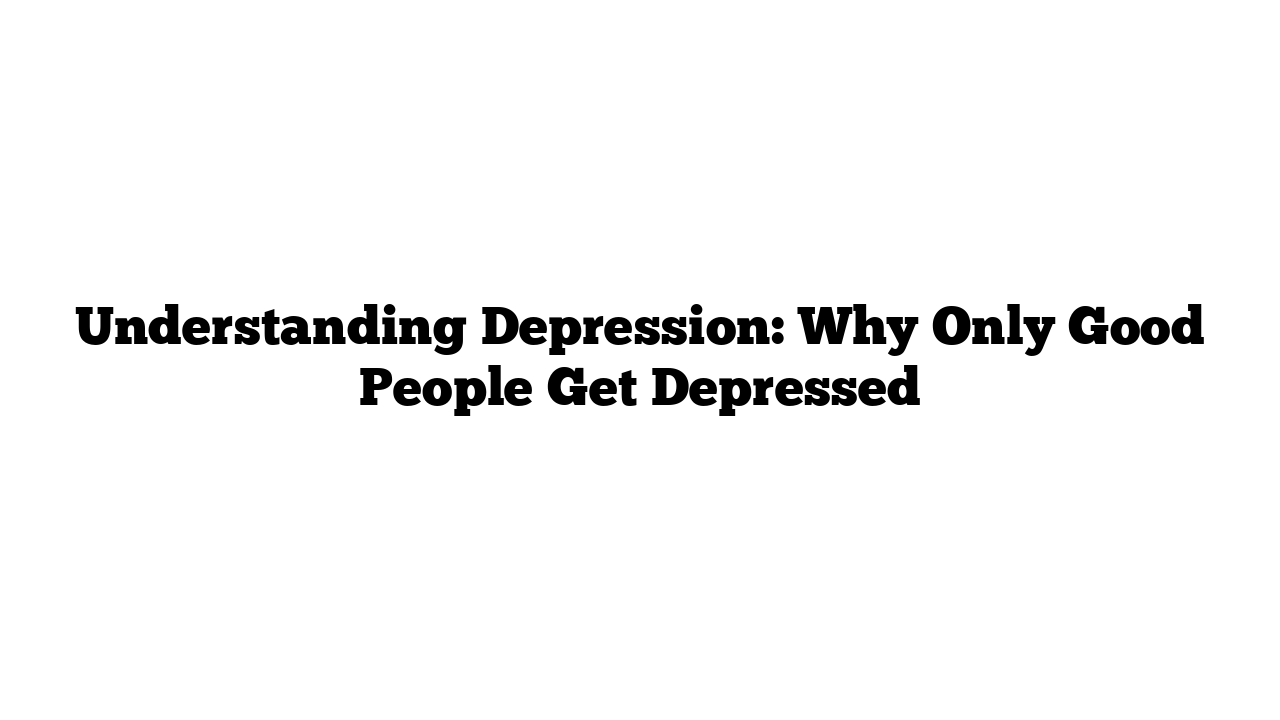Depression is a complex mental health condition that can leave individuals feeling guilty and inadequate. This feeling can persist from childhood and create a sense that we are fundamentally flawed. Dorothy Rowe, a prominent psychologist, has significantly contributed to our understanding of depression and its roots.
The Weight of Guilt
Many people believe they must be “good” or perfect to be accepted, and when they inevitably fall short, they can experience profound shame. As Rowe explains, “Only good people are depressed.” This notion implies that those who are sensitive and strive for goodness often suffer the most.
The Nature of Self
Rowe’s psychological theory emphasizes that the self is not a fixed entity but rather a dynamic construct shaped by personal experiences and social interactions. Think of the self as a process of becoming, where individuals can influence their identity.
The Role of Society
Society plays a crucial role in shaping our self-perception. From a young age, we internalize social norms and values that dictate success, such as being a hard worker or achieving certain goals. When we feel we don’t meet these ideals, it can lead to feelings of inadequacy, shame, and anxiety.
The Discrepancy Between Real and Ideal Self
Rowe argues that when we recognize a significant gap between our perceived life and our actual experiences, we may feel as though our entire world is crumbling. This realization can trigger a mental breakdown, as it challenges our entire structure of meaning.
The Importance of Self-Narratives
We often create personal narratives or schemas to make sense of how others view us. While these stories can provide meaning, they can also become too rigid, preventing us from adapting to new realities.
Escaping Psychological Prisons
Rowe introduces the concept of psychological prisons—self-imposed limitations that arise from negative self-talk. When we believe unchangeable stories about ourselves, we can set impossibly high expectations. For instance, a perfectionist might think, “I must be perfect to be loved.” Falling short of this expectation can lead to feelings of depression.
Breaking Free
To combat depression, Rowe suggests that we must free ourselves from these psychological prisons. However, it’s important to recognize that we cannot take full responsibility for our mental health. Broader social and cultural factors often contribute to these feelings.
The Bigger Picture
Rowe’s work highlights the influence of systemic inequality and power dynamics on mental health. Individuals often don’t operate in a vacuum; they are products of their environments. Understanding these external pressures can help us navigate our mental health challenges more effectively.
Acceptance Over Analysis
One key takeaway from Rowe’s insights is the importance of acceptance. We can love someone without fully understanding them. This acceptance allows individuals to explore their feelings without being overwhelmed by constant self-analysis.
Resources for Support
If you or someone you know is struggling with depression, it’s essential to seek help. Here are some resources:
- National Alliance on Mental Illness (NAMI)
- Mental Health America
- Substance Abuse and Mental Health Services Administration (SAMHSA)
Embracing Learning and Growth
The journey through depression can be challenging, but understanding the underlying mechanisms can empower us. For those seeking to expand their knowledge on mental health, consider exploring platforms like Brilliant, which offers engaging courses on various subjects.
For further insights and discussions about mental health, visit medicaltimes.io. Embrace the journey to mental well-being—you’re not alone.
